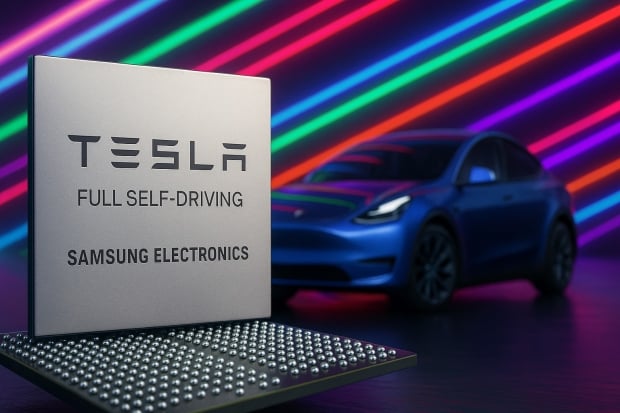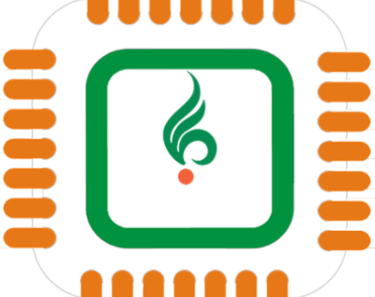Musk Enters the Chip Game
Elon Musk partners with Samsung in a $16.5B deal — bringing Tesla directly into chip manufacturing and reshaping the future of semiconductors.
8/1/20253 min read


Elon Musk and Samsung: A $16.5B Move That Could Reshape the Chip Industry
The semiconductor world was shaken by the recent announcement of a $16.5 billion deal between Tesla and Samsung Foundry. While many see it as a straightforward supply agreement, this partnership runs deeper — positioning Elon Musk as a direct influencer in chip manufacturing and marking a major strategic shift in the industry.
Samsung Foundry has long struggled to gain ground against TSMC, which dominates advanced chip production with massive orders from Apple, Nvidia, and other tech giants. Samsung’s Taylor, Texas fab — once stalled due to lack of demand — now has a lifeline, thanks to a customer big enough to revive operations single-handedly: Tesla.
But this isn't just about orders. Musk isn’t merely a buyer — he’s now actively involved in fab operations.
“I Will Walk the Line Personally” — Musk’s Deep Involvement
In a statement that caught global attention, Musk said:
“Samsung agreed to allow Tesla to assist in maximizing manufacturing efficiency. I will walk the line personally to accelerate the pace of progress.”
This goes far beyond traditional supplier relationships. Musk, who has disrupted industries from automotive to aerospace, now intends to bring his operational style directly into semiconductor fabrication. This level of involvement by a customer — especially a car company CEO — is unprecedented.
Samsung’s willingness to allow such influence speaks volumes about its urgency. The deal signals both a major win for Samsung’s foundry business and a bold new chapter in fab-customer collaboration.
Why Not Intel?
The deal’s most glaring implication is not just who Tesla chose — but who they didn’t.
Intel, amid its aggressive re-entry into the foundry business and heavy investments in advanced nodes like 14A, would have likely welcomed a Tesla partnership. It could have been the justification Intel needed for billions in expansion plans. But it didn’t happen.
Whether due to execution doubts, strategic concerns, or just simple preference, Musk chose Samsung. The implications are hard to ignore. Intel now finds itself on the outside of one of the most strategic chip deals in years — a missed opportunity that highlights the continued challenges in rebuilding its foundry credibility.
What This Means for Tesla
This partnership secures something Tesla has long sought: a reliable, bleeding-edge, U.S.-based chip supply.
With global supply chains still fragile and geopolitical tensions high, having local, tariff-resistant access to advanced chips gives Tesla a significant edge — especially over competitors like GM and Ford, still reliant on aging or foreign fab capacity.
It also provides flexibility and scale for Tesla’s AI and robotics ambitions. Musk has often expressed frustration over dependency on third-party chipmakers like Nvidia. With this deal, Tesla gains a more controllable pipeline for its most critical silicon.
Impacts Across the Ecosystem
Samsung Foundry receives a massive credibility boost and revenue stream to challenge TSMC more effectively.
Tesla becomes even more vertically integrated, with tighter control over chip supply for EVs, robotics, and AI.
Intel faces tough questions about its ability to compete in the foundry space.
TSMC maintains its leadership but misses a high-profile customer.
Tool makers benefit from Samsung’s fab restart — though Musk’s hands-on approach may reshape how tools are evaluated and purchased.
Global automakers risk falling further behind as Tesla secures advanced domestic chip access.
Conclusion: The Rise of “Fab Manager Musk”
Elon Musk’s latest move is not just a business deal — it’s a statement of intent. His direct involvement in fab operations signals a new era where tech companies no longer just consume chips; they influence how they are made.
With Tesla now embedded in the manufacturing process, and Samsung re-emerging as a foundry force, this partnership may mark the beginning of a shift in how chipmaking partnerships function. As the line between customer and collaborator blurs, the semiconductor industry may never operate the same way again.
Source - Semiwiki
QUICK LINKS
NEIL RAO TOWERS, 117 & 118, Rd Number 3, Vijayanagar, EPIP Zone, Whitefield, Bengaluru, Karnataka 560066
200/2, Tada Kandriga, Tada Mandalam, Tirupati District - 524401
Locations

